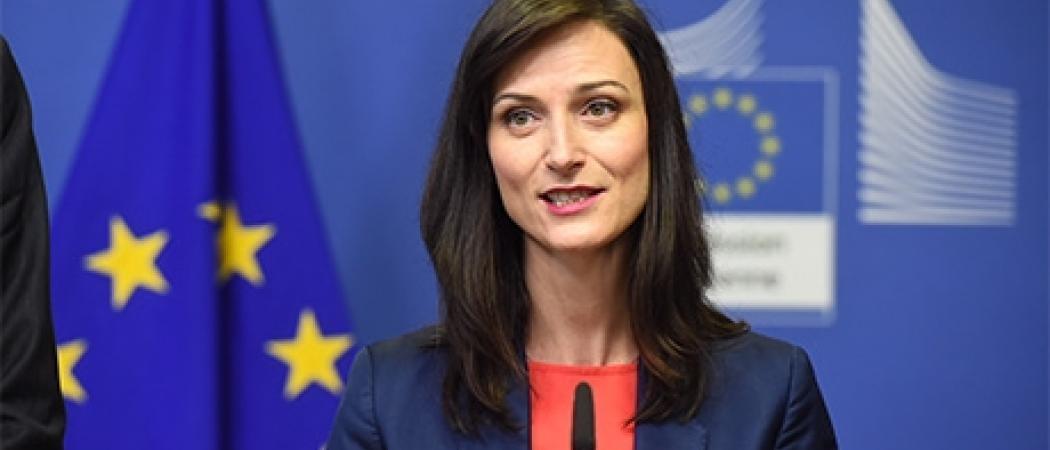After pandemic delay, plans for a new-look ERA are due on 30 September. At same time, the European Commission will launch a Digital Education Action Plan and set out objectives for refreshing the European Education Area

Mariya Gabriel. Photo: European Commission.
The European Commission is to unveil a long-awaited plan to shake-up the European Research Area (ERA) on 30 September, according to a schedule published on Monday.
The ‘Communication on the Future of Research and Innovation and the European Research Area’ will be announced by Margrethe Vestager, the commission’s executive vice president, and Mariya Gabriel, commissioner for research and innovation.
Gabriel had planned to publish the communication in June, but that was derailed by the pandemic. In addition, the initiative sparked a great deal of interest from member states, stakeholders and research lobby groups, and over the summer the commission has been gathering input from universities and research and industry associations.
Over 60 institutions submitted feedback and showed broad support for a new-model ERA. They are hoping the plan will provide a balanced approach that values investment in both fundamental and industrial research.
The plan for a revamped ERA should also include ideas for increasing the quality of research and innovation in poorer regions of the EU, with Germany’s Helmholtz Association saying ERA needs to be more inclusive and to work towards increasing excellence in all member states.
At the same time, university associations want the EU to lean on member states to spend more on national research programmes.
Alongside the ERA plan, the commission is planning to launch a ‘Digital Education Action Plan’ and a separate set of objectives for refreshing the European Education Area.
ERA was first launched in 2000, but its goals were always seen by member states as recommendations, not as legally binding goals.
With the notable exception of the establishment of large European research infrastructures, most of the objectives set in 2000 have not been reached. Member states failed to increase national R&D investment to at least 3 per cent of GDP, while the EU has not been able to effectively coordinate national and regional research programmes, to avoid duplication of effort and deliver economies of scale.
On 21 July, the day after EU leaders agreed on a smaller budget for Horizon Europe, research ministers publicly endorsed the commission’s effort to revive ERA.





 A unique international forum for public research organisations and companies to connect their external engagement with strategic interests around their R&D system.
A unique international forum for public research organisations and companies to connect their external engagement with strategic interests around their R&D system.